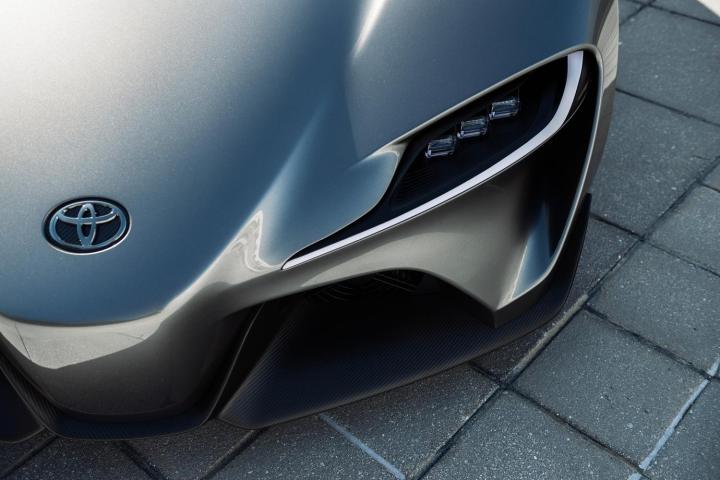
All autonomous vehicles built so far rely on programming to make decisions. If engineers did not write software for a given scenario, the car simply does not know what to do. One possible solution is developing artificial intelligence capabilities for future robot cars, and at a press conference in Palo Alto today, Toyota said it will take the first steps to develop that.
The Japanese carmaker will invest $50 million over the next five years to establish joint research centers at MIT and Stanford. Researchers will work to develop artificially-intelligent systems and investigate how they can be applied to future self-driving cars.
The combined research effort will focus on improving the ability of vehicles to recognize objects in different environments, provide “elevated judgment” of conditions, and safely interact with other vehicles and pedestrians, said Dr. Gill Pratt, who recently joined Toyota to head up the research project. Pratt previously worked at the Defense Advanced Research Projects Agency (DARPA), where he led its robotics challenge.
In addition to reducing crashes and improving efficiency, Toyota believes artificially intelligent self-driving cars could increase the mobility of a greater number of people. They could allow the elderly and disabled to attain a greater degree of independence, the company believes, noting that technology born of this research could also be applied to healthcare.
Toyota did not discuss any further details or specific goals for the research program; its robotics expert, Pratt, noted that this latest funding announcement is separate from any efforts Toyota might make to develop an autonomous prototype.
The company has yet to join the parade of self-driving prototypes unveiled to the public by other carmakers like Audi, Mercedes-Benz, and Nissan, and has made statements indicating that it is interested only in driver-assist systems, rather than full autonomy.
If Toyota can develop viable artificial intelligence for self-driving cars, though, it may leapfrog those efforts. Rather than responding to specific situations in a pre-programmed manner, an artificially-intelligent car would actively decide to intervene or take a certain action, in a sense making the same moral decisions that human drivers must make behind the wheel.
Editors' Recommendations
- Waymo robotaxi attacked and set on fire in San Francisco
- Cruise woes prompt production halt of fully driverless van
- Toyota joins ‘the Tesla plug’ club
- Waymo expands robotaxi service area in San Francisco
- Cruise autonomous vehicle drives over woman just after she was hit by another car

